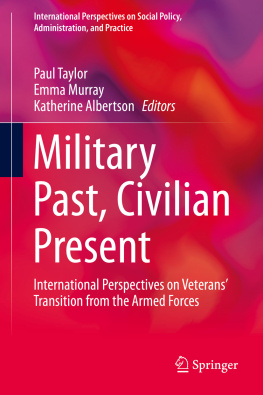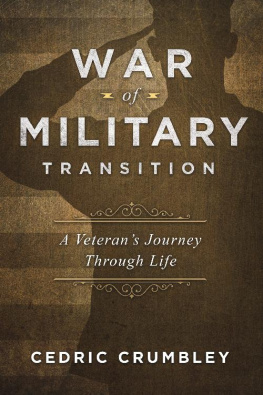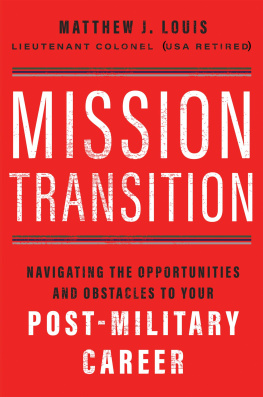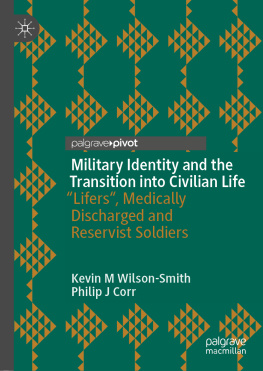International Perspectives on Social Policy, Administration, and Practice
Series Editors
Sheying Chen
Pace University, New York, NY, USA
Jason L. Powell
Department of Social and Political Science, University of Chester, Chester, UK
The Springer series International Perspectives on Social Policy, Administration and Practice puts the spotlight on international and comparative studies of social policy, administration, and practice with an up-to-date assessment of their character and development. In particular, the series seeks to examine the underlying assumptions of the practice of helping professions, nonprofit organization and management, and public policy and how processes of both nation-state and globalization are affecting them. The series also includes specific country case studies, with valuable comparative analysis across Asian, African, Latin American, and Western welfare states. The series International Perspectives on Social Policy, Administration and Practice commissions approximately six books per year, focusing on international perspectives on social policy, administration, and practice, especially an East-West connection. It assembles an impressive set of researchers from diverse countries illuminating a rich, deep, and broad understanding of the implications of comparative accounts on international social policy, administration, and practice.
More information about this series at http://www.springer.com/series/7
Editors
Paul Taylor , Emma Murray and Katherine Albertson
Military Past, Civilian Present
International Perspectives on Veterans Transition from the Armed Forces
Editors
Paul Taylor
University of Chester, Chester, UK
Emma Murray
Liverpool John Moores University, Liverpool, UK
Katherine Albertson
Sheffield Hallam University, Sheffield, UK
ISSN 2625-6975 e-ISSN 2625-6983
International Perspectives on Social Policy, Administration, and Practice
ISBN 978-3-030-30828-5 e-ISBN 978-3-030-30829-2
https://doi.org/10.1007/978-3-030-30829-2
Springer Nature Switzerland AG 2019
This work is subject to copyright. All rights are reserved by the Publisher, whether the whole or part of the material is concerned, specifically the rights of translation, reprinting, reuse of illustrations, recitation, broadcasting, reproduction on microfilms or in any other physical way, and transmission or information storage and retrieval, electronic adaptation, computer software, or by similar or dissimilar methodology now known or hereafter developed.
The use of general descriptive names, registered names, trademarks, service marks, etc. in this publication does not imply, even in the absence of a specific statement, that such names are exempt from the relevant protective laws and regulations and therefore free for general use.
The publisher, the authors, and the editors are safe to assume that the advice and information in this book are believed to be true and accurate at the date of publication. Neither the publisher nor the authors or the editors give a warranty, express or implied, with respect to the material contained herein or for any errors or omissions that may have been made. The publisher remains neutral with regard to jurisdictional claims in published maps and institutional affiliations.
This Springer imprint is published by the registered company Springer Nature Switzerland AG
The registered company address is: Gewerbestrasse 11, 6330 Cham, Switzerland
Preface
In the summer of 2015, the editors and a small group of others came together to ask how we might reimagine the veteran. Starting from the premise that how conflict is experienced by those who served requires new forms of thinking and analysis, this interest group suggested that a critical interrogation of veteran affairs is one which engages with war, justice , welfare and rights from the margins. It was a call to take seriously the lived experiences of veterans through the myriad of problems they face with an aim to effect pedagogy and policy . This collection started at that event. Our calls to reimagining the veteran are ongoing. What is presented in this book is however a start. We suggest this subject is approached as less of a series of neat and generalizable explanations; but instead be viewed as aspiring towards a range of critical examinations of the positioning in public discourse and experience of the military veteran. The main aim of this collection is to give the veteran the analytical attention it warrants. Across chapters, and in taking the book as a whole, we aim to begin to chart the landscape around questions such as how veterans transition and homecomings interact with policy. We might further contemplate whether policy evolves out of homecoming or homecoming evolves out of policy and the critical directions that policy is, or is not taking in respect of those transitioning, and those who have transitioned from military service. Importantly, we note Raewyn Connells (2007) astute reminder of the geo-political location of much of this research the global north. We accept that, with the exception of, Taiwo Oluwaseyi Oshigbo and Kehinde Olaoluwatomi Oshigbos chapter in this volume concerning the Nigerian context, this collection is also dominated by perceptions from the global north. This has consequences which we hope that we, or perhaps one of our readers, can address in the fullness of time.
Compiling a text such as this requires an immense amount of support from those around us. There are so many thank-yous, but so few words that are truly adequate. Most of all we want to thank our families and friends for their expert support and their ability to provide sincere encouragement without both this project would never have come forth. To our academic colleagues thank you. We feel fortunate to be among so many great minds who have the ability to counter any insecurity when we wobble on the worth of our own work. And finally, our gratitude goes to the chapter authors inside these covers. Their contributions and engagement with us have made this scholarly undertaking a hugely pleasurable way to spend time and energy.
Paul Taylor
Emma Murray
Katherine Albertson
Chester, UK Liverpool, UK Sheffield, UK
Abstract
This edited book presents a synthesis of current international knowledge on the topic of military veteran transition to civilian life, and understanding this is of great importance. The essential elements of transition support are currently widely debated in order to assess current practice and potential shortcomings in the intention to improve health, welfare and social outcomes for military veterans.
This text links original research and critical commentary to public policy and practice in the area of veteran transition. Doing so through a collection of international perspectives assists in locating continuity and difference between strategies, agendas and the realities of what is actually known of the veterans experience.
Chapters in this text examine the subject of transition along lines of enquiry that focus on themes such as social justice, veteran identity and developments in transition agendas. Globally, many veterans face complex social issues such as low income, barriers to employment, and problems of health and welfare. Chapters take stock of the real-world issues affecting veterans and at the same time casts a critical eye over the limitations in accessing, or denial of access to opportunities, support and remedy. The veteran identity is an important dimension of enquiry here. This book looks at the relational factors between the veteran and the public, the creation of a master status and the challenges faced by veterans in transitioning into a cultural context that is saturated with imagery of what a veteran is. Chapters also seek to pose recommendations as to how the policy and practice agenda that surrounds veterans and the bridging of the gap between military and civilian life may be developed. Here authors point out the value of knowledge, research and analysis that is underpinned by participatory strategies with veterans themselves. For example, seeking to establish lines of enquiry that value the voice of veterans as an ongoing and iterative dimension of developing understanding.














![Louis Hicks - The Civilian Lives of U.S. Veterans: Issues and Identities [2 volumes]](/uploads/posts/book/133676/thumbs/louis-hicks-the-civilian-lives-of-u-s-veterans.jpg)

